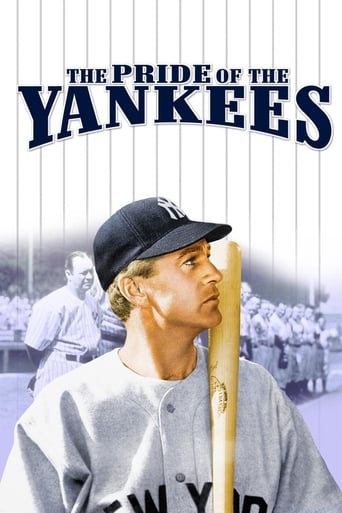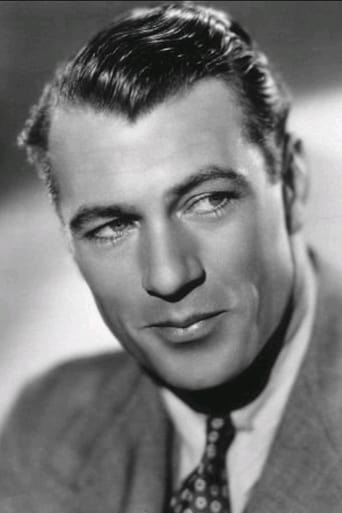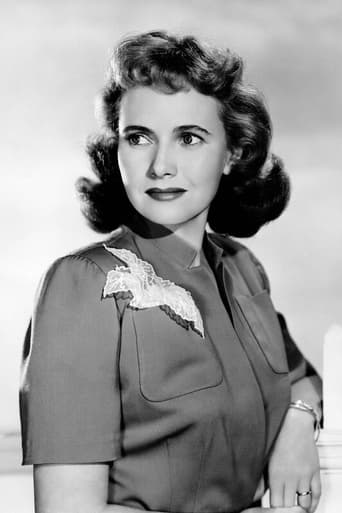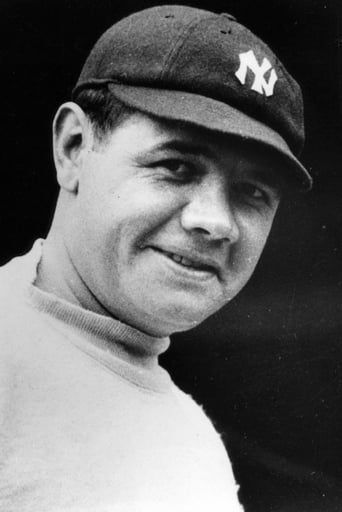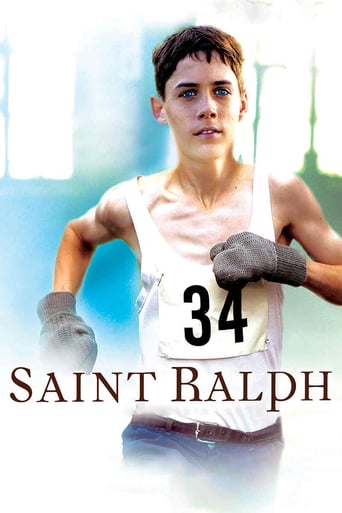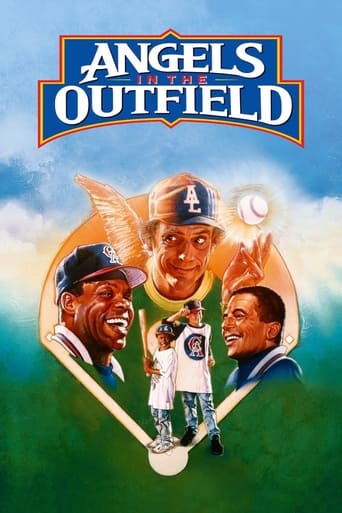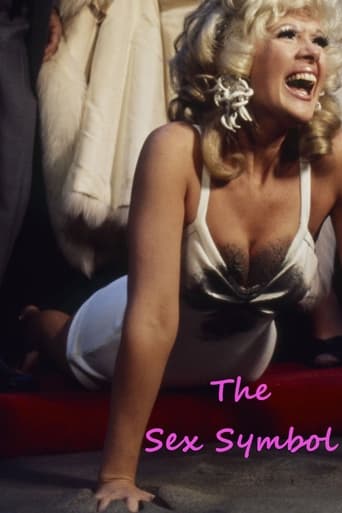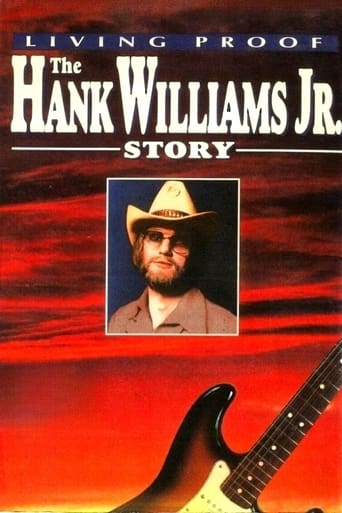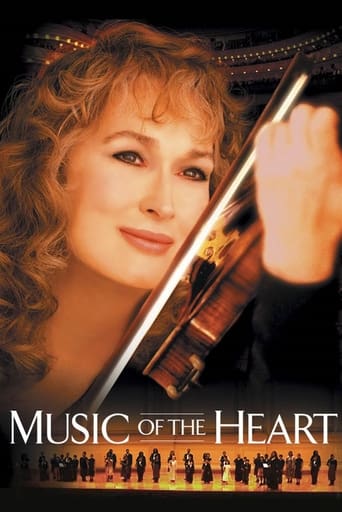The Pride of the Yankees (1942)
The story of the life and career of the baseball hall of famer, Lou Gehrig.
Watch Trailer
Cast


Similar titles
Reviews
There is a certain kind of movie prevalent during the WWII years that takes any subject matter and turns it into a bland, palatable rallying cry for American heroism. I can understand why these films exist and what role they played in keeping up the morale of a war-weary American public, but they age terribly and are almost impossible to enjoy now. They're so insubstantial in their efforts to avoid any kind of dramatic conflict that they threaten to dissolve right off the screen as you're watching them."The Pride of the Yankees" is one of those movies. It's nominally a biopic about famed major league baseball player Lou Gehrig. But it's really just an excuse to peddle in some pandering American hokum. As portrayed by Gary Cooper, Gehrig is a boring simpleton. As far as this movie is concerned, he was just some random guy who was good at baseball and then died of something. We get no sense of his contribution to the sport, and his disease and death is treated so vaguely by the screenplay that the tragedy of it doesn't hit home either. Almost nothing of consequence happens over a run time of 2+ hours.I've decided that Sam Wood was the most boring director to be produced by the Hollywood studio system. Good God, this man could not put together a compelling shot if his life depended on it. This entire film consists of static shots of two or three people standing in place looking at each other and talking, followed by another scene filmed the same way. Shouldn't a movie about a sport move at least a little?The Academy went ga-ga over this film at the time, giving it 11 Oscar nominations, second only to "Mrs. Miniver" that year. Its sole win was for Film Editing, which I guess is the one award I could somewhat justify, since editor Daniel Mandell had to make it look like Gary Cooper was seamlessly integrated into baseball games. Otherwise, it was undeserving of every other nomination, which included Outstanding Motion Picture, Best Actor (Cooper), Best Actress (Teresa Wright, playing one of Oscar's favorite types, the nobly loyal wife), Best Original Motion Picture Story, Best Screenplay (when these were considered two distinct categories rather than being bundled under Original Screenplay), Best Art Direction (B&W), Best Cinematography (B&W), Best Dramatic or Comedy Score, Best Sound Recording, and, perplexingly, Best Special Effects. Grade: D+
The Pride of the Yankees is a great sports film because it works as more than just a sports film, but also a compelling drama and a pleasantly romantic story of a larger-than-life baseball player who was tragically brought down by a crippling disease that eventually killed him at 37. Just two years before his death, Gehrig was every young boy's idol, an incomparable hitter and a terrifically talented ballplayer on all cylinders. It's only complementary to his legacy that he get one of the strongest sports films of the era to go along with his tremendous achievements.Gary Cooper plays Gehrig in a performance that would exhaust even a veteran like Cooper. Jo Swerling and Herman J. Mankiewicz craft the role of Gehrig in a manner that emphasizes his impressive accomplishments and accolades, his love-life with his wife Eleanor (Teresa Wright), and the struggle with his diagnosis of amyotrophic lateral sclerosis (more commonly known in the modern-day as ALS). Cooper throws himself into the role of Gehrig in a way that shows off all these attributes with great nuance and character acting.Swerling and Mankiewicz are also very disciplined in the way they handle Gehrig's story of unabashed talent and persistency. He is such an easy figure to emptily bedazzle and decorate in meaningless awards that can be tossed around with little or no context. Given the time period when this film was made - in an age where cinema was largely resting its strengths on the shoulders of stars - this seems like the perfect film to be an oversimplified trainwreck, but thanks to careful writing and mindfulness regarding a scene or a time period's particular direction, the film winds up being anything but an oversimplification.The element of the film that will undoubtedly get downplayed the most, though it deserves a greater focus, is the relationship between Lou and Eleanor. Their marriage is frequently positioned as one that's romantic and loving, for good reason, as both parties consistently respect the intentions of one another. Conventional biopics would embellish this marriage's more hostile/theatrical exchanges of what path Lou should take once he discovers he is facing terminal sickness, but rather than make light out of arguments, Wood, Swerling, and Mankiewicz show how caring Eleanor was to Lou and how respectful and reciprocating Lou was to her intentions. Ultimately, let's not forget how unlikely this whole setup would've worked, regardless of writing, if Teresa Wright hadn't handled her role with such conviction, especially during the later scenes, where she can barely look at her ailing husband without her eyes welling with tears.Another emotional or heart-tugging element in the film comes with seeing the evolution of Gehrig's parents role in his life. In early scenes, Gehrig's mother (Elsa Janssen) would always affirm that Gehrig would grow up to be like his uncle, a wealthy engineer that would work to provide for himself and his family and be a valued member of society. When Gehrig ditches his academic aspirations for athletic ones, Wood is conscious to keep Gehrig's mother's initial disillusionment with her son's choice in perspective before gradually showing her change of heart that most mothers would undergo as they witness their son be an incomparable success and a community staple.The result is a film that's very romantic and thoroughly heartwarming, in addition to simply being a very well-edited sports biopic. The Pride of the Yankees' broad title suggests an all-encompassing look, or even history, into the renowned franchise, but its focus, while broad and far-reaching, profiles a wonderful life, and the film itself features tremendously engaging performances to compliment its story.Starring: Gary Cooper, Teresa Wright, Babe Ruth, Elsa Janssen, and Ludwig Stössel. Directed by: Sam Wood.
It's not often that I see such a great movie where one of my heroes portrays another, but, this is certainly one of them. Gary Cooper portraying Sergeant Alvin C. York is another.Gary Cooper does a magnificent job as Henry "Lou" Gehrig despite being two years older, for starters; and, several years older (41 playing someone in their twenties) near the beginning of the movie while at Columbia University.Walter Brennan is brilliant as always! Teresa Wright is stunning! Besides Babe Ruth, until watching this recently on TCM, I didn't realize that other New York Yankees' teammates of Gehrig's were also in the movie as themselves - Bob Meusel; Bill Dickey; and, some others. This made the movie that-much-more enjoyable this time around! It falls into the category of movies that can be watched over and over again.I also like the 'innocence' of a movie like this as it can be viewed by everyone in the family - from small children who love real-life heroes to the elderly who remember these heroes from real-life.Although there are a few biographical errors about Lou Gehrig's life...overall, the movie is fantastic, even if you're not a real baseball fan! If you are a real baseball fan...this movie is a must-see!
This is a biopic of famed baseball player Lou Gehrig (Gary Cooper) from his working class roots to his famous Luckiest Man speech following his disability from ALS. His father is a janitor and his mother is a cook. He works hard even serving food to his fellow students. His hard hitting game soon attracts the Yankees but he keeps it a secret from his mother. He meets his future sweetheart Eleanor Twitchell (Teresa Wright). She had called him "tanglefoot" in the game when he tripped on the bats. So later at dinner, he trips her and calls her "tanglefoot".It's an old fashion straight-forward biopic. It's a little long and needs to cut back on some of the slower parts. It's not really the most dramatic and neither is the man himself. He is simply an earnest hard working guy and Gary Cooper plays him with charm and humility. A noteworthy aspect is that some of Gehrig's teammates play themselves in the movie.

